Youth centres: 'It has helped me find myself'
- Published
- comments
De-Graft visits HideOut Youth Zone in Manchester
Hundreds of thousands of children in the UK go to youth centres every week. But, there are growing concerns that lots of these centres could close down.
According to figures from the Youth charity YMCA, government funding for youth centres in England and Wales has been cut by £1 billion in the last decade.
More than 750 youth centres have had to close in this time and 14,000 youth workers have lost their jobs.
It has been two years since the government promised to spend £500 million on youth services, saying the money would go towards building 60 new youth centres.
The government has told Newsround it will deliver on this promise in this parliament.
De-Graft has been to youth centre in Gorton, in Manchester, to find out why it's important to the kids who use it.
HideOut in Gorton is part of national charity for young people, OnSide, which has a network of 14 youth centres called Youth Zones supporting over 50,000 young people.
The Youth Zones have been built in some of the most vulnerable areas in the UK, where child poverty levels are really high.
There are more than four million children in the United Kingdom living in poverty. This means that they live in families that sometimes don't have enough money to pay for essential things like bills and even food. These families often rely on help from others and support from the government in order to eat properly.
Clubs like this are an important place for young people to go to when they're not at school, especially during the summer holidays.
In most cases the centres rely on financial help from local businesses and the government to stay open.
This funding allows the clubs to keep their centres cheap for the kids attending. For example, it only costs families 50p a day to go to the Youth Zone in Gorton.
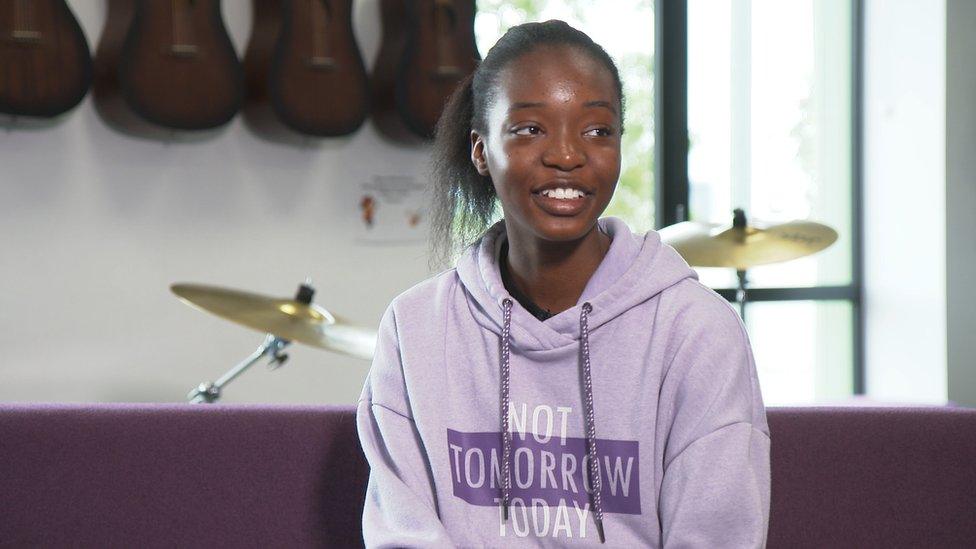
Olivia thinks her local youth club has helped "find out who she is"
Olivia, 13, is one of the children who regularly visits the club.
"It's somewhere to get out the house, a place to meet more people and gives you opportunities that you wouldn't otherwise be able to do. It enables you to try and find out who you are," she told Newsround.
"Gorton isn't the best place to be by yourself, so definitely having somewhere to go gives my parents the reassurance that we're going to be safe."
Youth centres at risk
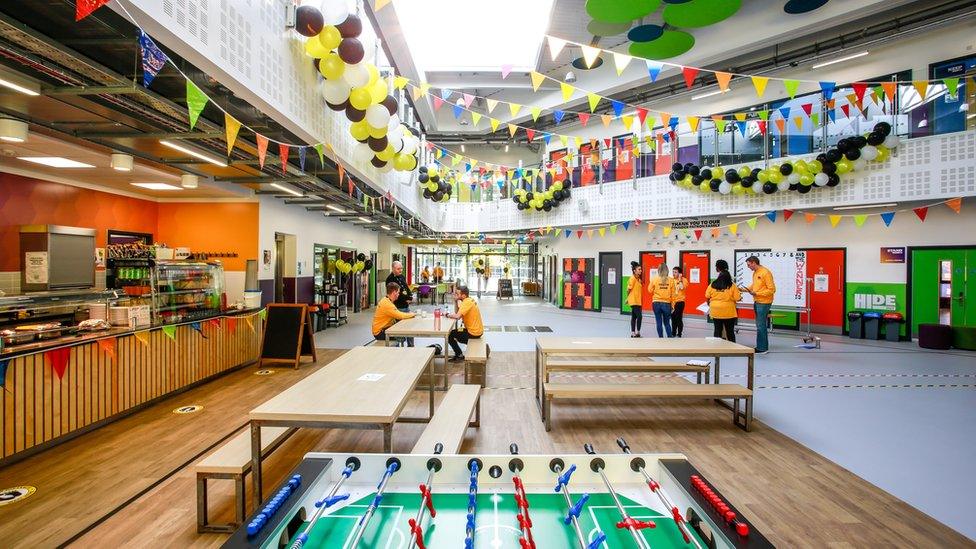
In February, a leading youth charity said that lots of youth centres across the UK are struggling to stay open.
Youth UK surveyed almost 2000 organisations and 64% said they were at risk of closure in the next 12 months following the coronavirus pandemic.
According to figures from the Local Government Association, more than 750 centres have had to close in the last ten years.
Earlier this month, Sir Keir Starmer - who is the leader of the Labour Party - highlighted what he saw as a connection between cuts to youth services and a rise in anti social behaviour.
He said that almost half of the 50 areas in England with the highest crime rates were also among the 50 with the deepest cuts to youth services since 2011.
However, some experts says it's impossible to link the rise in anti-social behaviour with the closure of youth centres.
WATCH: Children tell Newsround how their youth centre kept them out of trouble (2019)
HideOut's head of youth work, Joe Amos, told Newsround that youth clubs are essential for keeping young people out of trouble.
"When young people aren't involved in positive activities they are more likely to get exploited and get involved in crime and other illegal activities," he said.
"By having a centre in the heart of the community that's open for the amount of hours it's open, it enables young people to go somewhere and do something good."
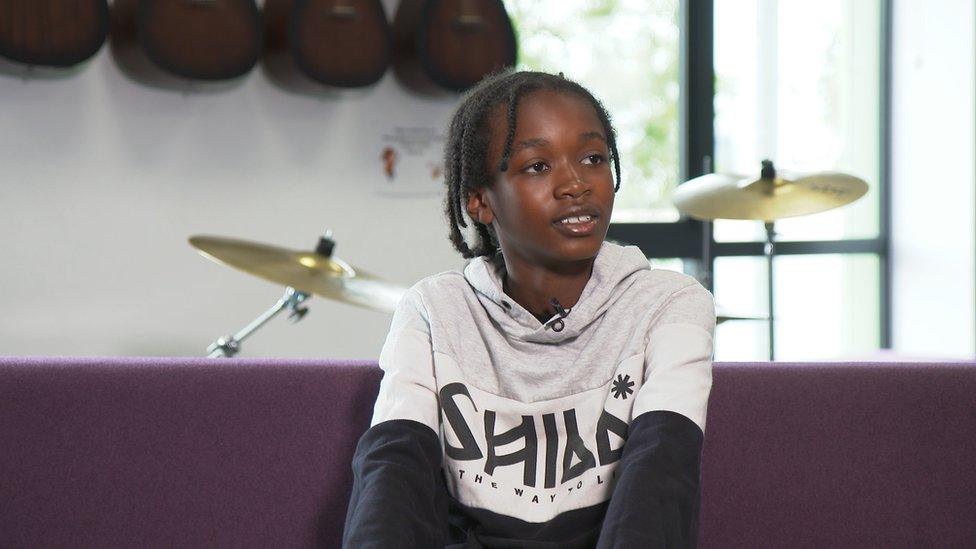
Blake says his local youth club has helped him stay out of trouble
Blake, 11, agrees. He has been going to the Youth Zone in Gorton ever since lockdown restrictions were lifted.
"It keeps you from being in the wrong group of children who are on bad paths. It gives you something to do and it's not meeting up with bad people.
"If you see someone who's not doing something that nice to someone else, you can just tell a member of staff."
What does the government say?
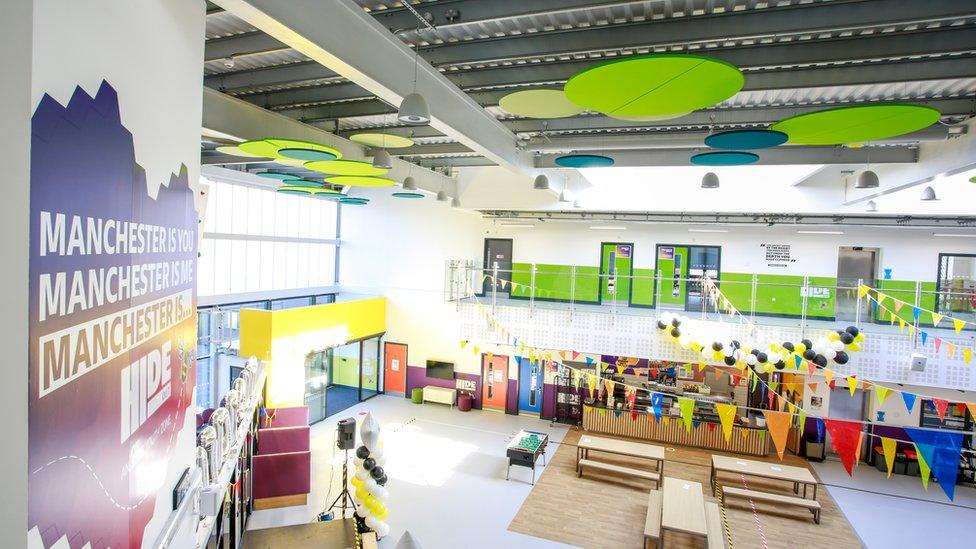
A spokesperson from the Department of Media, Culture and Sport told Newsround: "We absolutely recognise the vital role youth services play.
"Over £100 million from our unprecedented charity sector package has gone to organisations supporting children and young people during the pandemic, including the £16.5 million Youth Covid Support Fund which provided emergency funding specifically for youth services.
"The £500 million Youth Investment Fund remains a manifesto commitment for this Parliament, and will invest in services and safe spaces for young people across the country."
The Welsh government said it had worked with the youth sector throughout the pandemic, and had helped services to access over £21m in grants, with additional emergency funding, to allow them flexibility to respond to "the immediate needs of the young people they support".
A Scottish Government spokesperson said: "We recognise the valuable role the youth work sector has to play in supporting the health and well-being of young people in Scotland.
"Throughout lockdown, youth work services and organisations rose to the challenge, providing remote learning and mental health support to children and young people when it was most needed.
"We have increased our investment in youth work over the past year to £12.5 million. This has helped young people to re-engage in youth work through social activities, summer holiday programmes and outdoor learning."
Newsround has also contacted the Northern Ireland assembly for its response.
- Published18 October 2019
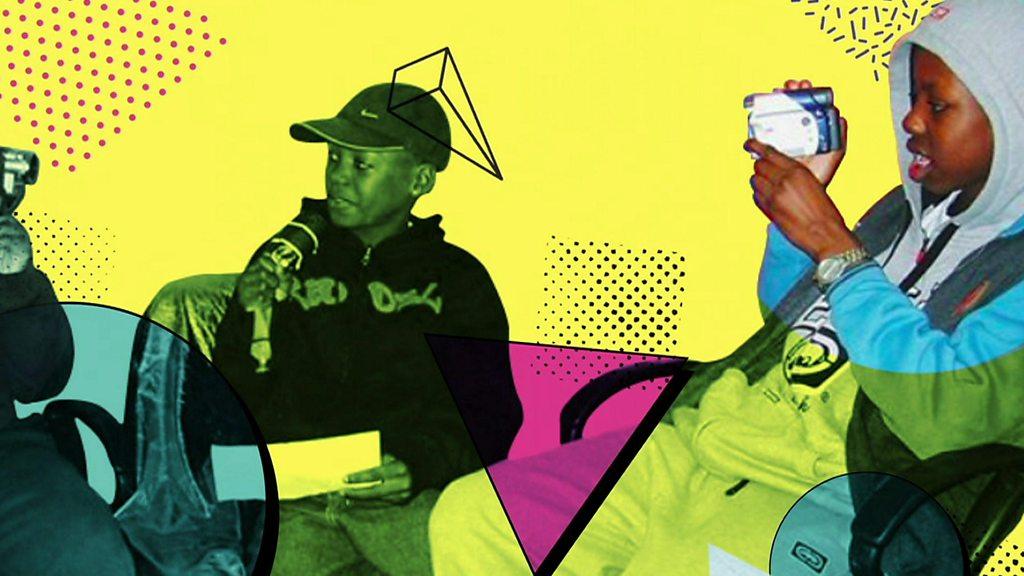
- Published24 August 2020
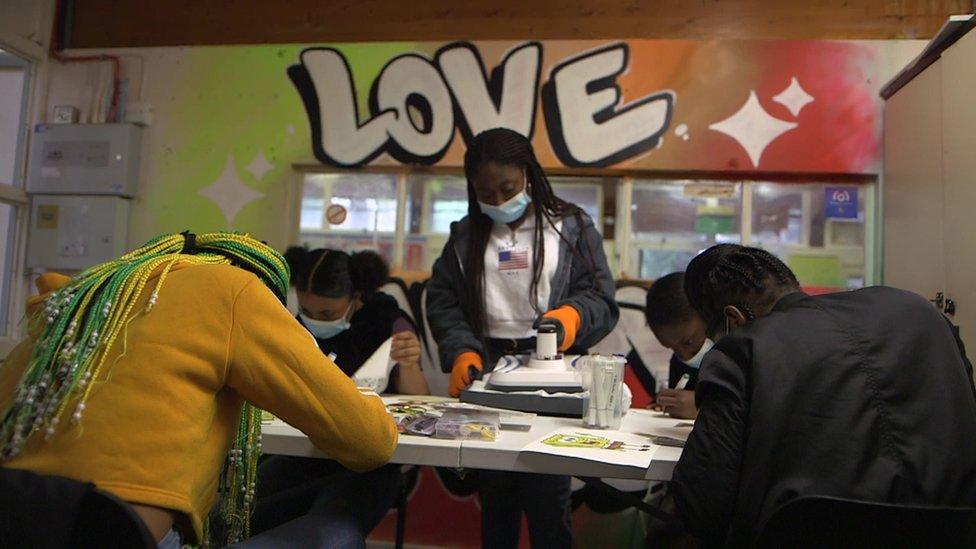
- Published17 October 2019

